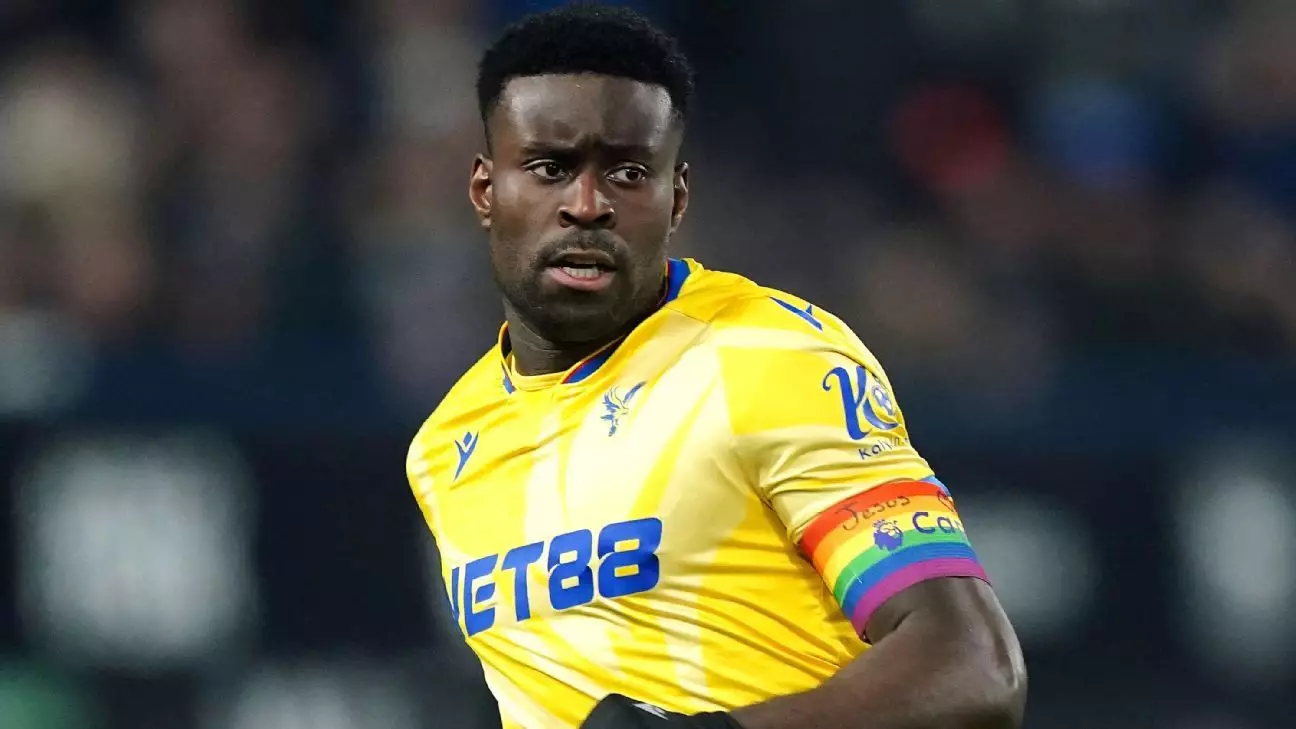In a recent Premier League match, Crystal Palace defender Marc Guéhi sparked discussions about the intertwining of faith, personal beliefs, and the sporting arena. Known for his devout Christian beliefs, Guéhi made headlines when he inscribed the phrase “Jesus loves you” onto his rainbow-colored captain’s armband during a game against Ipswich Town. The piece of fabric, an emblem of the ongoing support for the LGBTQ+ community, was issued to all Premier League clubs as part of the Rainbow Laces campaign facilitated by Stonewall, an organization championing LGBTQ+ rights in sports.
This incident, however, hasn’t gone unnoticed by governing bodies in football. Following similar actions by Guéhi during a previous match against Newcastle United, which involved writing “I love Jesus” on the same armband, the Football Association (FA) had to reiterate their regulations concerning religious messages on player uniforms. The FA’s Rule A4 explicitly prohibits the display of messages not associated with the competition or its advertising, aiming to keep the game neutral and focused on inclusivity.
The crux of this situation lies in the balance between individual convictions and the responsibilities attached to being a professional player. Guéhi’s choice to print a religious statement on an armband meant to signify support for a marginalized community could be interpreted as a contentious act of defiance against the FA’s guidelines. Critics may argue that this action undermines the very purpose of the Rainbow Laces initiative, which seeks to uphold diversity and inclusion within the sport.
Contrastingly, Ipswich’s Sam Morsy, a practicing Muslim, opted out of wearing the rainbow armband altogether, adhering instead to a traditional black captain’s armband. The differing approaches of Guéhi and Morsy illuminate a broader conversation regarding how athletes navigate their personal beliefs in a highly scrutinized public sphere. The FA acknowledged Morsy’s stance as an individual choice, emphasizing that such decisions fall within the realm of the club and its players.
These incidents have wider implications in the realm of sports and beyond. As society grapples with issues of faith, rights, and expression, football serves as a microcosm reflecting larger societal tensions. The act of using sport as a platform for personal belief—whether religious or political—can elicit polarized responses from fans and organizations alike.
It raises critical questions: Should athletes be allowed to express their individuality through such scripted displays? Or do the regulations set forth by governing bodies serve a necessary purpose in maintaining sporting neutrality? As the debate continues, the role of sports in advocating for both civil rights and personal beliefs is brought to the forefront of public discourse, pushing both players and regulators to reconsider the implications of what can be worn on the pitch.
The incident involving Guéhi and Morsy complicates the narrative of inclusivity in football, requiring a careful examination of how personal beliefs interface with larger communal goals and ideals within one of the world’s most popular sports.
